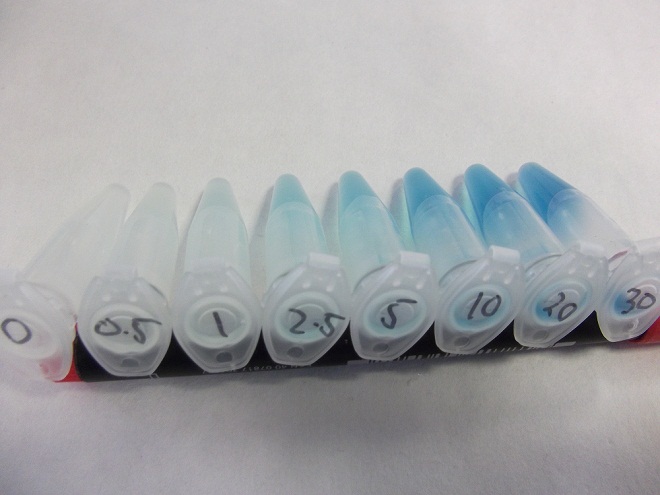Team:Cambridge/Project/FluorideRiboswitch
From 2012.igem.org
| Line 11: | Line 11: | ||
This construct was initially tested with an X-GAL assay, which produced excellent results. Having gained this qualatative data, we moved onto performing a Miller assay to produce more quantatative data. | This construct was initially tested with an X-GAL assay, which produced excellent results. Having gained this qualatative data, we moved onto performing a Miller assay to produce more quantatative data. | ||
| - | [[File: | + | [[File:fluoridegradient.jpg|left|250px|thumb|The results of our X-GAL assay on the fluoride riboswitch construct. Numbers on the top of the tubes represent the fluoride concentration of each solution in mM.]] |
If time permits, we are also aiming to put our part into [[Team:Cambridge/Project/Standardised_Outputs|Ratiometrica]], once it is completed: | If time permits, we are also aiming to put our part into [[Team:Cambridge/Project/Standardised_Outputs|Ratiometrica]], once it is completed: | ||
Revision as of 20:16, 25 September 2012


Fluoride riboswitch
We also plan on implementing and characterising a Fluoride riboswitch. This, unlike the Magnesium construct, is a positive regulator. The riboswitch, originally isolated from Bacillus cereus, serves as a transcriptional attenuator in the abscence of fluoride. In the presence of fluoride its conformation changes and the repression is lifted. In B. cereus this serves to permit translation of a fluoride efflux pump, which allows the bacteria to cope with the potentially toxic fluoride levels in which it finds itself.
We have kindly been provided with a plasmid from the Breaker lab in Yale University, the key features of which are shown below:
This construct was initially tested with an X-GAL assay, which produced excellent results. Having gained this qualatative data, we moved onto performing a Miller assay to produce more quantatative data.
If time permits, we are also aiming to put our part into Ratiometrica, once it is completed:
References
- Jenny L. Baker et al., Widespread Genetic Switches and Toxicity Resistance Proteins for Fluoride, Science 335, 233-235.
 "
"

